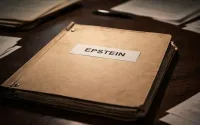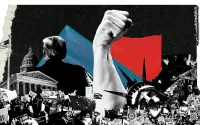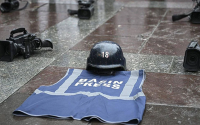Published on Friday, May 13, 2005 by the St.Louis Post-DispatchMichael D. Sorkin
More than 2,000 people are traveling to St. Louis this weekend to try to figure out how to fix what's wrong with newspapers, radio, TV and the rest of the news media.
You might be tempted to join them, but you can't. The National Conference for Media Reform is sold out. Registration is closed and Free Press, the conference organizer, already has turned away hundreds of applicants.
You can still participate in the grass-roots movement without paying the $185 fee by listening online at freepress.net. The conference itself is at the Millennium Hotel downtown, today through Sunday.
Three members of Congress are expected to attend. So are two commissioners from the Federal Communications Commission. Journalists, students and academics will mingle with movie producers and bloggers. Speakers include Al Franken of Air America, Victor Navasky of the magazine The Nation, and Bill Moyers of PBS.
The media are under fire from the left and the right, from anti-war protesters to those who plan wars in the White House. And with good reason, says Robert McChesney, a founder of the media reform group.
"It's failing, and it's failing disastrously," he says.
McChesney teaches communications at the University of Illinois at Urbana-Champaign. He fell in love with journalism at age 9 as a paperboy growing up in Cleveland. He was a conservative youngster who once showed up in school with his shirt covered with Barry Goldwater buttons. He published a rock 'n' roll magazine in Seattle (The Rocket), before turning to teaching and writing books.
Later he tried starting a television show with a journalist, John Nichols, on which the two were supposed to spar over the day's issues. It bombed after one show because the two agreed on nearly everything - including the need for media reform.
The two grew increasingly concerned as the number of newspapers shrank and big media companies gobbled up radio and TV stations. They reasoned that fewer journalists and news outlets meant higher profits but less time for reporters to dig out the truth.
"When profits go through the roof," McChesney argues, "quality goes into the Dumpster."
But there is no way for the public to fight that trend, the pair concluded.
Then, in 2003, they founded Free Press and learned just how wrong they were.
That was the year the FCC voted to loosen media ownership rules and allow big corporations to own even more outlets.
In response, about 2.3 million people flooded the commission with complaints. Congress and the courts stopped the rule change, and today it's on hold.
"I didn't know there were 2.3 million people who even knew there was an FCC," says one commissioner, Michael Copps.
He and Commissioner Jonathan Adelstein held several dozen open-microphone hearings across the country. They had no budget and little publicity.
"But word got out, and six, seven, eight-hundred people showed up" at each session, Copps recalled.
The message everywhere was the same: People were concerned about losing their local radio or TV station or newspaper.
People described how their favorite radio station stopped covering the news, or how one TV station bought an entire news broadcast from a local competitor, changing only the anchors so the show appeared to be their own.
Copps describes watching TV stations during last year's political campaigns:
"On the evening news, you don't hear about your local House races. You seldom hear about Senate races. And when you get to presidential races, you're more likely to see political ads than news stories about the race."
This is not just an issue in the "blue" states or the "red" states, he added. "You get pretty much the same reaction in both."
Copps says public pressure was responsible for stopping the rule change.
("The 'bad' news," he added, "is that they've now been sent back to the very same place that dreamed them up" - the FCC.)
During the debate over the FCC rules, about 50,000 people in one day called, faxed or e-mailed their members of Congress. "It literally turned 50 to 60 votes that day," McChesney says.
More recently, Free Press took on the issue of so-called government propaganda - videos produced by government agencies and sent to TV and radio stations. Stations sometimes use them without identifying the source.
Free Press helped get 40,000 people to write to the FCC. The agency then warned broadcast stations against presenting government videos as news.
Free Press is a national, nonprofit and nonpartisan organization with an office in Washington, 14 full-time staff members and an active e-mail list of about 165,000. Funding comes from individual donations and foundations, including the Ford Foundation.
The meeting in St. Louis is the second National Conference for Media Reform. The first, in November 2003 in Madison, Wis., drew 1,700 to 1,800 participants.
Organizers say they didn't want to stop accepting new registrations for this weekend's conference. But they worried that the fire marshal would shut the doors if attendance grew any larger.






